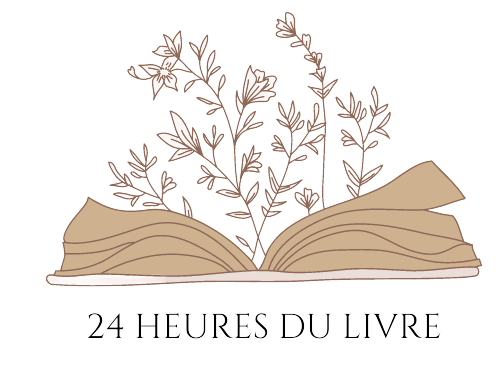‘Building Something Together’: Translators Discuss Their Art
There are as many ways of translating a literary text as there are translators. The act of carrying a work from one language to another — an art as much as a craft — is anything but mechanical: Translators’ choices are informed by their sensibilities, their emotional landscape, their background.
Literary translators have, however, historically received little recognition. Readers who love books that were rendered in their words often haven’t known their names, since they were not featured on the covers. Within publishing, they were frequently underpaid and given no rights or royalties for their work.
Efforts by translators and by organizations like PEN America, which recently issued a manifesto on literary translation, have brought the field greater visibility, helping to cement the rights of translators and to raise awareness of literary translation as a creative art in its own right.
For a frank discussion of the state of translation, The Times gathered a group of recognized translators:
-
, a translator from Spanish, is the founding editor of Words Without Borders, a digital literary magazine of international literature in English.
-
, a translator from Japanese, also represents the PEN America Translation Committee on the organization’s board of trustees.
-
, originally from Singapore, translates from Chinese and is also a novelist and playwright.
-
is a Thailand-born lawyer turned literary translator.
-
, originally from Brazil, is a literary translator from Portuguese and a writer.
This conversation has been edited for concision and clarity.
Over 50 years ago, at the first World of Translation Conference organized by PEN, Isaac Bashevis Singer said: “Translation must become not only an honorable profession, but an art. While I don’t like bloody revolutions, I would love to see a translators’ revolution.” He went on to say of translators that “in all of literature they have been the pariahs,” and to call on the conference to be “the beginning of a rebellion where ink instead of blood will be shed.”
What revolution was he alluding to there, and how much has been accomplished in the years since?
There are two ways to answer that question. One, translators’ rights is something I think Singer was referring to. But I also think that the translator’s role as a conduit for literature in translation is equally important. To the first issue, I would say a lot of progress has been made in the last 50 years. It was the case that translators routinely were expected to grant copyright in perpetuity for their translations.
Famously, [Gregory] Rabassa’s translation of [Gabriel] García Márquez’s “One Hundred Years of Solitude” was a copyright grant, which really ignores the role of the translator as a creative aspect of the work. No two translators would ever create the same translation from the same text. So I think progress has been made in areas like that.
But I think we have a lot of progress yet to go. For example, the way I see the role of a translator today is very much as a curator. Translators are much more active in the market now: Translators are acting as scouts, in many cases acting as agents. Almost always those roles go unpaid.
I do think translators have a lot more power than certainly 50 years ago, and I would argue even 20 years ago. Translators need to keep fighting to keep those issues at the forefront.
We as an Anglophone culture are mass exporters of all sorts of culture, and we are not importing even a fraction of that. Translators play a really critical role in helping to counteract that.
In addition to wanting fair pay, wanting our art to be recognized, our names on the covers of books, I also would like to see a push away from this very academic sentiment that comes out of comp lit departments: that it’s some white person from this culture who goes into another culture and imports these artifacts.
There is this sense that it’s a transaction, and it’s one-directional. It feels like a very anthropological impulse from maybe a couple of centuries ago. I would like instead to have more of a conversation.
In the English-speaking world, we are enthralled with the idea of the single author. And so conversations around translations either focus entirely on the original author, rendering the translator subservient, or else talk about the translator as if the only way the translator could have agency is to go completely rogue, disregard all notions of faithfulness and assert their own version of the book at the expense of the original. The idea that translation is a collaborative process, that the author and the translator are building something together, doesn’t really get as much airtime as I would like.
It’s a question of authorship, right? It’s an opportunity to hold translators accountable for the work that we do. If I don’t even know who did this, how am I going to evaluate or ask the right questions?
The other thing is that the translator as author brings so much personal baggage into the work. We can’t translate outside of ourselves. I definitely use my experiences both as a writer — my knowledge of craft — and my experiences as a reader, in everything that I translate. I also bring my emotional experiences.
It means that I won’t bring unexamined biases into the work. It means that I have an opportunity to be in genuine dialogue with the work. All of that is impossible if I am erased, my identities are erased, my experiences are erased.
What a translator brings to the work of doing the translation, we also bring to the works that we’re inspired to translate. Historically that was very much a white male academic’s perspective.
I’m part of a collective called Strong Women Soft Power that promotes Japanese women writers in translation. When we formed it I started looking at the numbers — who was being translated. Despite my perception that there were a lot of Japanese women writers being translated, that was actually not the case. That led me to look at what the landscape was like in Japan. And in Japan it was a much more balanced environment between male and female writers. And that wasn’t being accurately reflected in English translation.
I want to mention the unevenness of the playing field, which might not be apparent to people outside of the translation world.
Someone working from, say, German could quite feasibly, if they were sufficiently established, make a living simply by waiting for publishers to come to them with German books to translate. Whereas with less represented languages or regions, the translator often has to advocate for the book or it doesn’t get translated at all. Thai literature in English translation pretty much wouldn’t exist if Mui weren’t finding these books and putting them in front of publishers.
That plays into two points, like what Sam said earlier about the unpaid labor of translation. When I work on a book project, I follow it from start to finish. I read the books, I pick the books, I pitch the books, I translate the samples — initially I was never paid for samples. That is a real barrier to entry for a lot of people.
In terms of who gets to translate, I’m really excited by this movement to give more opportunities to heritage language speakers, translators from the countries of the literature that they’re translating from. This will really broaden the landscape of what becomes available in English.
Have you seen a shaping of what books are available in English because of this advocacy by translators?
Absolutely. If you think of publishing as an ecosystem, the translators are like the seed spreaders. We’re diversifying that ecosystem. There’s a fixed number of editors out there; they will have certain sensibilities and they will be limited by the market in the choices they can make. When you work with translators, you have whole other worlds opened up to you.
The translator is often the only person who can see both sides. The source language country might have rights agents doing good work, but they don’t know the English-language publishing world as well. The Anglophone world has well-meaning publishers who would love to do more translation, but they have no way of knowing the source language landscape. And apart from basically a few large Western European cultures which are well resourced with book scouts, in general, the translator is often the only person with a clear view of both sides.
If a book from a language that you work from becomes successful, do you feel like that starts to color readers’ or editors’ expectations? In Japan this has been called the [Haruki] Murakami effect. Do you have that experience?
I definitely have that experience a lot. I was recently advocating for a book called “The Dark Side of the Skin,” about racism and police brutality in Brazil, by Jeferson Tenório. Some of the readers evaluating it for interested editors said, “I don’t know if this is the one book about racism in Brazil that we should read. There are others that are very good.”
There’s this implication of simplicity, that if I read this one thing — I mean, how much can there really be to that culture? I’m done, you know?
Is there still a sense from publishers that, Oh, we have our India book for the year, we have our Japanese book for the year?
I’ve noticed both a kind of tokenism and a kind of herding. So I’ve had, “We have our Chinese book for the year.” But I’ve also had, during the dominance of “The Three-Body Problem,” publishers saying, “We want as much Chinese science fiction as we can get our hands on.” In both cases it’s treating books as interchangeable commodities rather than individual pieces of art that you consider on their own merits. I will say that there are more and more enlightened publishers who are able to see beyond that these days.
I haven’t had that experience, but I always fear it. After my first book, which was billed as the first Thai translation published in Britain outside of an academic press, it was like, well, are they going to want another one? I worried about that.
One thing I find striking is that with literature in translation, what exists in English is shaped by specific factors that are not visible to readers. Some countries, for example, fund translations from their language.
Publishers have such a limited budget. I’ve been really interested in books that editors said they couldn’t buy. So they will pass on it, and then instead buy a Scandinavian book or a Korean book because it got a lot of funding and they won’t have to pay out of pocket.
The playing field is definitely not level. There is some good work being done out of Anglophone countries in terms of grants, but they’re hard to come by because you’re competing with translators and translations from every language. I’ve applied for funding from Thailand a couple of times, but I have not received funding from the Thai government.
Despite the fact that Japanese ranks relatively high on the number of works in translation, there is actually relatively little subsidy available. None of the books that I’ve translated, or almost none of the books have really received any subsidies.
The funding tends to be quite Eurocentric, and that does have significant impact on what readers in English are offered. It’s pretty dramatic if you look at the countries that are really investing in cultural exportation.
That’s not to say that there aren’t great European writers who are worthy of being translated. There certainly are. But there are in Africa, in Asia, in Latin America as well.
Going back to the actual work of translation, there are a lot of interesting conversations right now about who the imagined reader is, and whether a translation should be smooth or challenging.
My imagined reader is myself. I translate books that I want to put out in the world because they aren’t there for me to read. And I also translate because of the process. Just as, you know, actors go after a part because it’s a great part for them and they want the experience of performing it.
I expect from the reader a minimum amount of curiosity, and also a bit of an ear. I want the reader to pay attention to the language, and to what I might bring from Portuguese into English. I hope they’ll get used to different voices and different accents, and appreciate all the value that’s in there. All the beauty and the language-play that’s in there, as opposed to wanting an experience that’s just going to reaffirm what they already know, who they already are.
My ideal reader is the author. I much prefer to work with an author who’s living, with whom I can have a dialogue. I’ve learned so much — not only about language, but also about the topics that the authors’ books are dealing with.
The reader I fear is the Thai reader, because they are more likely to be able to re-engineer my process. I teach at a university in Thailand, so I have students who read my translations side by side with the original. They are always sort of on one shoulder, being like, “Stay true, Mui, stay true.”
What brought you to this field?
Translation is just great fun, you know? The latest PEN translation manifesto emphasized how translation is a form of writing, and that for me is so true.
Translation is an extremely creative practice. It suits my aesthetic of creativity well. I don’t write my own work; I write translation. Working with an existing text in another language is just having different clay to mold with.
As a writer, I often felt like the best way for me to study any work was by translating it. It feels to my particular practice like those two are in dialogue.
But also as a person, the way I exist in the world — when I found myself as a Brazilian national in New England, suddenly my language wasn’t a part of my daily life. Translation was a way for me to put my Brazilian side and my American life in conversation, and to feel whole. So for me translation is very much a part of being truthful to who I am.
I grew up bilingual, biracial, I’m an immigrant, and translation is one of the few things that allow me the fluidity to explore all the areas of who I am, and not have to choose one identity or another.







